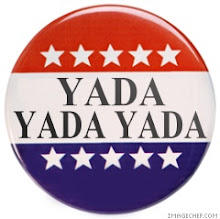There was a time when legal terminology was larded with Latin, but of late we have laws enacted as a response to a personal grievance with names like Megan's Law, named after someone's murdered child and the result of one man's efforts and one man's grief. The desire for justice, tolerance and a harmonious society, although it takes both authoritarian and libertarian forms, often seems more of an institution than a popular or private movement; an institution that has produced some odd and occasionally disturbing children of it's own.
Mark Twain wrote many of his books in the dialect of the time, which includes the now infamous but then universal "N" word and so many schools refuse to allow the books of one who dedicated his life and risked his livelihood championing minority rights. Of course our literature is full to the gunwales with books of more or less malicious depictions of racial and ethnic groups like Sax Rohmer's once popular Doctor Fu Manchu series and Joel Chandler's Uncle Remus tales. In the last few days there has been an ad hoc ruling by the nameless institution that rules on these things, and booksellers like Border's are taking a comic book style publication in the popular European series Tintin out of the children's section because depictions of Africans therein seemed undignified to an irate customer. The book was first published in 1931. All these things are in a sense relics. The message has got through to most people that our smug Eurocentric attitudes are something worth leaving in the past, but is it going too far to insist that we redact the literature and the culture that produced it so that historical attitudes are no longer visible? It is, in my opinion. Having read all these things as a child doesn't lessen my loathing for racism any more than having read the Bible has interfered with my contempt for the ethnic, racial, class and religious bigotry enshrined therein.
I think there's a danger both in the "ban it" reflex and the tendency of one perceived grievance to set it off. We are far too ready to ascribe the opinion of one man to the kind of "communities" we invent so that we don't sound racist by talking about "the Jews," "the Chinese," etc. Sometimes it's not a community, it's a professor, it's just teacher or some irritable guy with a grudge who can wield unchallengeable power. Perhaps if we began to adopt the current legal fashion and called it, for instance, Mrs. Appleby's Ban or Reverend Plushbottom's Censorship, some perspective might be restored.
A society that buries its history creates dangers for itself which include repeating that history as well as acquiring the ability to bury any part of history, such as the secular origins of the USA and gains the ability to create a fictitious history as is being demonstrated today.
Saturday, July 14, 2007
Subscribe to:
Post Comments (Atom)

No comments:
Post a Comment